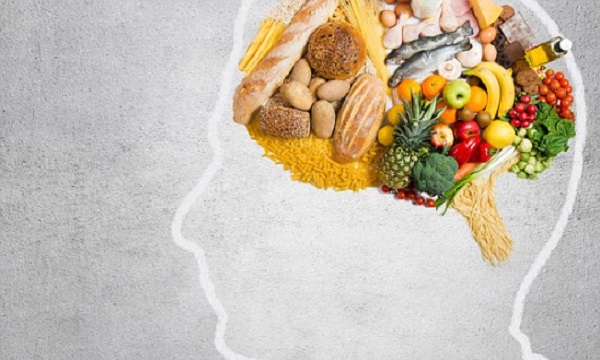With our hectic lifestyles, it’s incredibly common to feel a dip in concentration at work according to Daily mail.
Research has shown that when we’re not concentrating, our brain ‘turns off’.
Spending too long switched off could lead to premature ageing and early-onset dementia.
But by making small changes to your diet and lifestyle, you can make a real difference to your brain power in just one week.
Nutritionist Amy Morris offers seven easy steps you can follow to perform at your best every day.
1. EAT BREAKFAST EVERYDAY
Eating breakfast daily can help to improve short term memory and attention span, with several studies showing that students who eat breakfast tend to perform better overall than those who skip it.
Additionally, research has shown that those who eat breakfast also tend to eat a healthier diet, with more fiber and micronutrients.
On the other hand, people who skip breakfast tend to smoke more, and exercise less.
Morris says a good breakfast should ideally include a little food from all three of the macronutrient groups: protein, carbohydrates, and fats, and ideally the foods should be minimally processed.
2. DRINK MATCHA GREEN TEA INSTEAD OF COFFEE
Morris recommends replacing your morning coffee with the popular Asian powder used to make tea and other drinks.
Matcha will still give you a caffeine fix, which can help to energize and improve concentration. But, unlike your normal morning coffee, matcha will also give you a good dose of antioxidants that are known for helping to protect cells and DNA from damage.
Matcha also contains a good amount of the amino acid L-Theanine, and can eliminate the negative effects of caffeine such as jitteriness.
3. EAT MORE NUTS
Nuts and seeds are a good source of vitamin E, which has been linked in some studies to less cognitive decline as you age. A 2012 study found that walnuts in particular can help reverse some forms of age-related brain deterioration
Morris recommends using chia pods as a way to get extra vitamin E from seeds.
These seeds or a handful of pecans, cashews and almonds, slightly ground in your blender first, can top your morning cereal or porridge.
Additionally, unsalted nuts make an excellent mid-morning snack.
4. DRINK MORE WATER
A lack of water in the body means lack of water to the brain. This deficiency can lead to poor concentration, lack of focus, headaches, depression, and forgetfulness.
The best water to drink is purified water. Scientists recommend that men drink 2.5 liters of water per day, and women drink two liters.
But this may need to be increased if you exercise a lot or have a very physically demanding job.
5. EAT MORE OILY FISH
Several studies have shown that supplementing your diet with Omega-3 fish oil can boost concentration due to its ability to help increase blood flow to the brain during mental activity.
A 2011 study found that Omega-3 fatty acids found in fish, such as salmon, and seafood, can boost memory function by 15 percent. A diet with the fatty acid had also been linked to a lowered risk of dementia and strokes, and can slow down mental decline
6. MEDITATE TO DE-STRESS
A recent study found that people who meditate intensively had better attention and sustained focus, even during the most mundane of tasks.
But good news if you don’t fancy becoming a yogi anytime soon, previous research also found that meditating for as little as 20 minutes a day, over just four days, can be enough to improve cognitive skills.
In one test, where students were given a particularly challenging computer test of sustained attention, the ones who had meditated performed 10 times better than the control group.
Meditation has also been found to reduce stress and increase happiness – both contributing to a healthier brain.
7. GET A GOOD NIGHT’S SLEEP
When measuring sleepiness, scientists found that people with sleep deprivation had lower alertness and concentration.
Sleep serves to reenergize the body’s cells, clear waste from the brain, and support learning and memory.
Research has found that getting between seven and eight hours of sleep per night is ideal. Any less and people start to suffer from mood problems and have difficulty concentrating.
N.H.Kh

